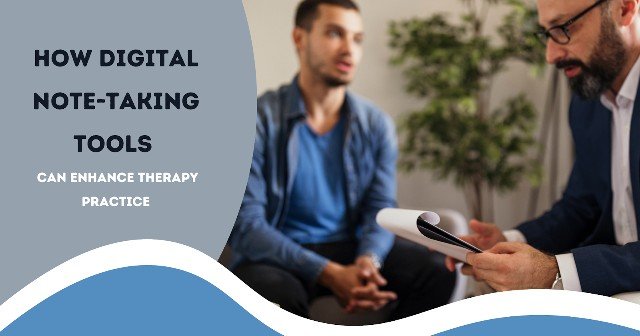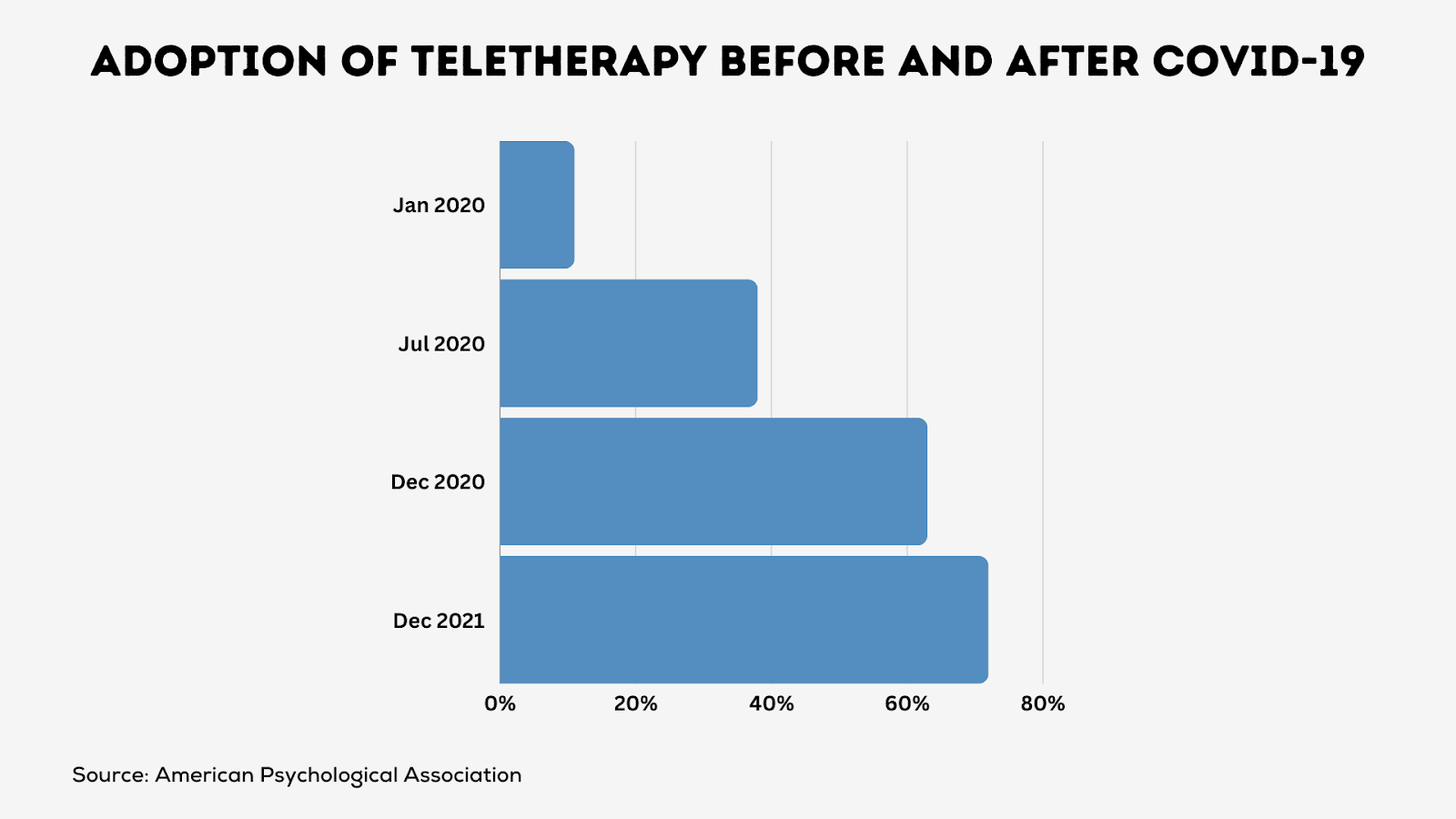Technology now plays an integral role across healthcare, promising improved efficiencies, insights, and patient care.
For therapists, digital note-taking tools offer tremendous potential to elevate practice. In this article, we’ll explore the key opportunities these tools offer to both therapists and healthcare facilities.
Why is Note Taking an Essential Part of Therapy?
Good note-taking is crucial in therapy sessions. Writing things down helps counselors track how clients are doing over time. Detailed notes enable various care workers to collaborate effectively, ensuring cohesive client support.
It takes practice, but clear therapy notes have a real impact. They allow better choices on the next steps for clients. Notes catch important details that can otherwise be forgotten. And they create records to look back on.
Digital tools now assist with note-taking tasks. Special websites and apps make it easier to type and organize notes. Features include handy templates, space to add links or files, and built-in reminder alerts. Some tools even let counselors write notes during sessions. These tools then send a summary for clients to review afterward. Going digital assists the process.
The goal stays the same – great notes inform better care. With adequate training and emerging technology, tracking progress has become more straightforward.
Streamlining Client Information Management
Digital note-taking facilitates efficient, centralized data workflows critical for quality care:
Easy Documentation
Intuitive templates, speech recognition, and flexible formatting accelerate progress in note-taking. These tools integrate assessment questionnaires, treatment plans, session summaries, and historical records into consolidated profiles.
Enhanced Privacy
Robust encryption, access controls, and auditing safeguard sensitive mental health data, supporting HIPAA compliance. Client consent further governs record access.
Continuity of Care
Cloud-based records enable seamless synchronization across devices, facilitating real-time documentation during both in-person and teletherapy consultations. Longitudinal tracking prevents information gaps or redundancies.
> Therapists leveraging digital note-taking tools gain 30% more direct client time by cutting administrative tasks.
Facilitating Therapist-Client Communication
Great progress notes strengthen counselor-client teamwork. As records of key moments, highlights help therapists better understand each person’s needs. Referring to notes keeps all on the same page from session to session. These summaries also spark productive discussions when reviewed together. Clients can pinpoint areas where more focus would help.
Additionally, digital notes enhance coordination. Secure online accounts let clients check records anytime as memory aids. Instant access allows them to come to meetings more prepared. Open notes pave the way for progress through better communication.Digital capacities also enrich therapist-client collaboration:
Shared Understanding
Co-signed progress summaries and treatment plans ensure transparency and mutual commitment.
Engagement Enhancements
Portals for appointment scheduling, goal setting, journaling, assessments, and messaging foster participation.
Flexible Interactions
Secure video conferencing and messaging enable continuity despite location barriers. Currently, such remote options account for over 70% of therapy visits. (American Psychological Association)
> Digital progress tracking and communication associated with 40% better client therapy adherence. (Psychotherapy Bulletin)
Supporting Evidence-Based Therapy
Incorporating evidence-based tools like assessments and outcome measures allows data-driven intervention planning and adjustment:
Metrics-Based Approach to Care
PHQ-9, GAD-7 and trauma scales establish baselines and quantify change.
Treatment Optimization
Progress dashboards quickly highlight lapses, triggering course corrections, and document efficacy.
> Digital integration of assessments lifts therapy effectiveness by 25%. (Journal of Clinical Psychology)
Ensuring Compliance and Confidentiality
Despite advantages, digital transformation warrants thoughtful implementation aligning security, trust, and ethics:
HIPAA Compliance
HIPAA is a US law that protects health information. In therapy, progress notes with client details must stay private. HIPAA fines clinics that leak data. Therefore, careful note-taking promotes compliance.
Digital notes often have more security controls than paper forms. Online tools use codes, firewalls, backups, and other forms of protection. Nevertheless, counselors must closely guard their login credentials. They should also inform clients of electronic note policies. Getting e-consent first is key.
Thoughtful progress notes and HIPAA work together. Safe data allows better care. Following the ethics rules earns patient trust. Private notes ultimately assist therapy.
Client Education
Progress notes help educate clients too. Reviewing a counselor’s session summaries provides clients with valuable insights. Notes showcase their strengths and growth. The records allow clients to see patterns in thoughts, feelings, or behaviors over time. Discussing notes creates chances to correct errors, fill gaps, or answer questions.
Digital notes significantly enhance learning. Many online tools let counselors securely share session summaries with clients instantly. Easy access allows clients to re-read highlights for reinforcement. Providing clients access to their progress notes ultimately enhances the quality of care.
Ethical Practice Evaluation
Careful progress notes promote ethics. Reviewing records helps facilities adhere to ethical guidelines. For example, supervisors can audit notes to guide improvement. They can check that consent forms were signed before the assessment. Or confirm notes go into locked files right after sessions.
Digital formats facilitate more efficient oversight. Online dashboards automatically track update times and sharing. Built-in alerts flag late entries or privacy concerns. Automated analyses even spotlight counselor patterns needing more training. Thoughtful notes, especially digital ones, assist ethical consistency.
Achieving Time and Efficiency Goals
Note-taking tools provide significant time savings and convenience:
Consolidated Platforms
Integrations eliminate toggling between scheduling, documentation, billing, and EHR systems.
Automation
Rules engines handle administrative tasks like appointment reminders and paperwork.
Portal Convenience
Clients can manage appointments, payments, and messaging online at their convenience.
Selecting the Right Software
An expanding marketplace offers boundless digital note-taking options for therapists:
Core Features
Differing strengths suit unique practice priorities – customized progress notes, scheduling, billing, session recording, analytics, etc.
Implementation Factors
Consider factors such as setup timelines, migration strategies, change management barriers, staff skill gaps, and the availability of training resources.
FAQs on Digital Note-Taking in Therapy
How can therapists guarantee robust data privacy and security?
Reputable, therapist-recommended platforms offer HIPAA-aligned encryption, access controls, and consent options by design, while also assisting in navigating evolving best practices.
What ethical obligations exist around digital therapy records?
Core tenants like informed consent transparency, optional participation, equitable access, and client data control must remain paramount. Ethical codes offer guidance.
Bottom Line
Digital note-taking presents tremendous potential to enhance therapy practice efficiency, therapist-client collaboration, and care quality. However, these promises are only realized with mindful adoption that aligns with security, ethics, and clinical best practices.
Discerning therapists can effectively harness technology as a beneficial tool while avoiding potential pitfalls. The opportunities for improved mental healthcare indeed warrant the effort.




